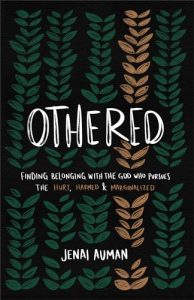 Summary: A discussion of how churches can harm, paraticularly those who have been previouly traumaized.
Summary: A discussion of how churches can harm, paraticularly those who have been previouly traumaized.
I think one of the reasons that people resist hearing about abuse is that trauma and harm are reception events. In other words, they are not universalized objective realities but subjective realities. Two people can experience the same events and be from similar backgrounds, and they can perceive those events differently. And in the research into trauma, it is not that one person is “right” and another person is “wrong” but that both have their own perception.
We have also had other people misunderstand us. We said something, and the other person either misheard what we said or what we said was accurately heard, but its meaning was still misunderstood. I think this is a universal experience, but moving that universal experience of misunderstanding to discussions of abuse and trauma is still difficult. I distinctly remember having a conversation with some guy friends about parenting and how we can’t just assume that what was helpful with one child will work with another. We lamented that children need different things from us because they are different. It makes any relational connection difficult because it takes work to monitor the relationship and seek to understand differences.
Author Jenai Auman uses her own experience as an illustration of the process of “othering.” This is not a memoir as much as an exploration of a topic where the author discloses her connection to it. The book opens with her very first day on the job, when she came to work an hour early to participate in a Bible study (unpaid) and was berated for being five minutes late. (She had just dropped her child off at daycare for the very first time.) I know some will read that description as not being abusive but simply a misunderstanding. But this is an important section because it sets up her discussion of definitions, and part of what is important about those definitions is that she is naming that the reception is what makes the harm harmful.
Leaders, in particular, seem to have a difficulty seeing that other’s perceptions are their perceptions, not a direct attack on them. Othered spends a lot of time talking about leaders and narcissism because narcissism so often is connected to abuse and harm precisely because the narcissist does not perceive or care about the harm.
I spent way too long working through Othered because I just kept needing to put it down and pick up something else for a while. I very much want to understand trauma and how it works and learn from those who are in some place of healing, but I have a low tolerance for it in my reading. I find it easier to be with people who have a trauma background in person or in my spiritual direction work than I do reading about it. I am not completely sure why that is, but it is something that I keep running into as I read. I spent nearly 2 months slowly reading Othered, a fairly short book.
There is a lot that I appreciate. Jenai Auman has done good work to understand the current state of trauma research. And she explains it well. She connects her personal harm and the harm of others well to how churches work. And I think one of the ideas she articulated well and I just had not explicitly thought out was that part of why churches need to work to understand trauma isn’t just so that they do not harm, but that so they can respond well to those who have been harmed in other spaces. As I said above when talking about parenting, something that isn’t harmful to one person who does not have a trauma background, very well may be highly damaging to another person who does have a trauma background. (Again all that caveats about not all people who are traumatized will react or respond in the same ways.)
If we as the church are called to love and accept all and work to incorporate them into the body of Christ well, that means we need to do the work to understand and respond. It is not unlike the problem many churches have with disability. In a theoretical way, most Christians believe that the church should be inclusive of disability, but disability it comes to actually making their buildings and programming inclusive for people with disabilities, and the costs and work that it takes, many churches do not actually complete the work that is required.
Othered: Finding Belonging with the God Who Pursues the Hurt, Harmed, and Marginalized by Jenai Auman Purchase Links: Paperback, Kindle Edition, Audible.com Audiobook